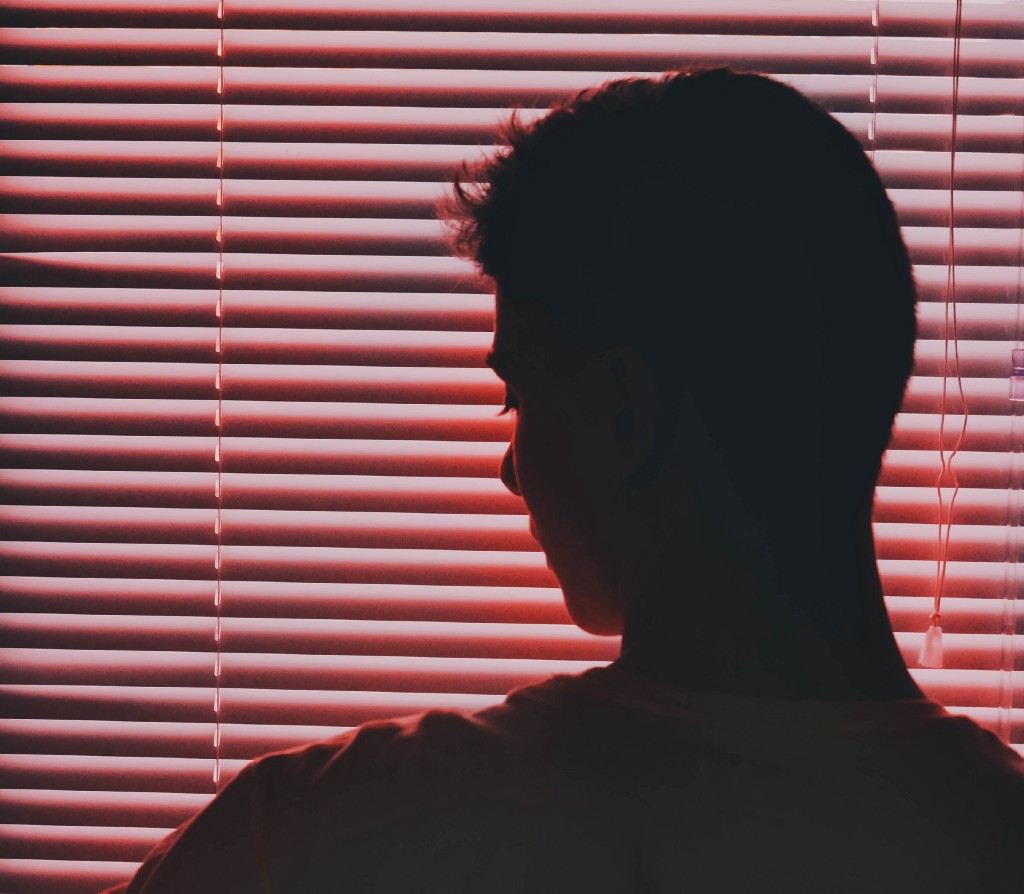Books & Culture
‘This Is Us’ Is My Grief Counselor
My father is dying, and suddenly a show I never cared about has become vital

M y father gave me stories, and the stories he gave me were dark. He read me Catcher in the Rye when I was nine, let me watch The Exorcist when I was 10, and rented me Misery on VHS after I broke my ankle at 11. As an adult, I developed an aversion to any non-emotionally devastating narratives as my tastes veered towards all things perverse and repugnant. Keep your George S. Kaufman to yourself, thank you very much, and bring me some Tennessee Williams! If it doesn’t end with cannibalism, why bother? Yet, when my father told me he had terminal lung disease and the only treatment was a lung transplant — a major procedure with its own risks and a fairly shaky five-year survival rate — his influence on my tastes all but vanished.
In the first weeks after his diagnosis, I experienced brief flashes of the moments just before he delivered the news. I had been eating Alfredo pasta with my fingers. In my mind’s eye, I would see my thumb and index finger, caked in chalky white sauce, pinching three loose ringlets of noodles. In “Shipwrecked,” essayist Janna Malamud Smith writes of constantly thinking of scenery from Robinson Crusoe after her mother’s death and realizing this was a metaphor. Her mother was the ship and she Robinson, ransacking the remains for valuables. I thought pasta was my Crusoe, but later realized it was a flashbulb memory. This is a term for exceptionally detailed, snapshot-like recollections of the moments preceding bad news. The mind cannot instantaneously process trauma, so it clings to its context for later examination. The details of these moments make them seem meaningful.

They are not. Desperation lacks introspection, so scraps stowed under its guidance are often benign. But this doesn’t mean the mind has no capacity for self-soothing. To paraphrase Smith, our brains often scour their repositories and deliver the necessary. With time, mine delivered. I found solace in a soapy NBC melodrama. My Robinson Crusoe was not pasta; it was the Pearsons.
One night, about a month after my father’s diagnosis, I felt a sudden urge to watch the new This Is Us even though I had missed three episodes in a row. I was transfixed. I spent the weekend re-watching the first season and then catching up on what I had missed of the second. After this, the show became a treasured weekly ritual, an obsession worthy of roughly 42 minutes of undivided attention per week.
‘This Is Us,’ given its decidedly non-literary nature, felt like a display of disloyalty to my father and his aspirations for me.
At first, I felt embarrassed by my infatuation. My dad wanted me to be, and still wants me to be, a writer. As he got sicker, my resolve to do so grew. This Is Us, given its decidedly non-literary nature, felt like a display of disloyalty to him and his aspirations for me.

To appreciate This Is Us, you must first accept that it is not high art. This is an observation, not an insult. Smith does not classify Robinson Crusoe, a rather pulp-ish novel, as high art either. Robinson is a classic, but Smith concedes a classic does not a masterpiece make. Classics, by Smith’s account, are measured less by artistic mastery and more by how many find within them something intimately necessary. Beowulf is one of the first stories in human history. You can kind of tell, but the central lesson it preaches — evil must be vanquished, but will always regenerate — helped define the moral backbone of Western culture. The story’s not great, but it’s important.
This Is Us has become an important weekly ritual for millions of Americans. In the Golden Age of Dystopian Narratives, no one particularly expected a traditional family drama to thrive. The show goes against every fashionable convention in modern television. The characters aren’t morally ambiguous, but fundamentally good people who make mistakes. The worlds in which they exist are not bleak futuristic settings or seedy underbellies, but average cities and towns. The dialogue is not laced with subtext; the characters say mostly what they mean. Yet the show was a bona fide hit from the moment it premiered in 2016, earning a slew of Golden Globe and Emmy nominations. Somehow, This Is Us crammed itself into a secure spot in the otherwise bleak airwaves.
In the Golden Age of Dystopian Narratives, no one particularly expected a traditional family drama to thrive. The show went against every fashionable convention in modern television.
In the show’s early days, I watched the program on occasion but never found it particularly compelling. I could, however, understand the appeal. I remember reading a review that stated perhaps the creators of This Is Us sensed a public fatigue overlooked by other show runners. The future was uncertain due to a multitude of environmental and political factors and human existence was feeling increasingly precarious. Viewers, therefore, may have grown tired of all the high concept, high fantasy, and high cynicism in modern media and longed instead for a soothing elixir in the form of good old-fashioned stories about relatable people. The timing for a show like This Is Us to thrive was impeccable for the public and, with time, for me.
Before my father got sick, my preferred brand of solace was all things raw and brutal. The Odyssey was important to me during my formative years as a reader and this bred an ardent belief in the archetype of the journey to the underworld. To return home, one must first plunge into the dark. You cannot rise before fully embracing the fall.
To return home, one must first plunge into the dark. You cannot rise before fully embracing the fall.
Two months before my father’s diagnosis, I was clinically depressed, unemployed, and fixated on two pieces of art. I re-watched the BoJack Horseman episode “Ruthie” and read the same Tony Hoagland poem, “Disappointment,” every day. “Ruthie” employs a framing device in which Princess Carolyn’s eponymous great-great-great-granddaughter Ruthie purportedly narrates from the future, but we later learn Ruthie is a fantasy spun to cope with a miscarriage. It isn’t real, Princess Carolyn says, but it makes her feel better. The episode reflected a mentality Hoagland captured in his poem:
She played the flute, he played the fiddle
and the moon came up over the barn.
Then he didn’t get the job, —
or her father died before she told him
that one, most important thing —
At the time, the motif of engaging with the fantastical as a coping mechanism rang painfully true, but I am no longer much of a daydreamer. I have stopped envisioning my future. I don’t think about crowning professional achievements while waiting for the bus. I don’t think of names for my potential children while in line for coffee. When my father got sick, my narrative changed abruptly. I could not recalibrate. Instead of “Ruthie,” my would-be daughter was named Ramona and, just like Princess Carolyn’s offspring, she was poised and funny and articulate. I still hope to have her someday, but envisioning that baby frightens me because the familial unit I always saw surrounding her is disappearing. When we lose our loved ones, we lose aspects of our imaginations; some realities are no longer tenable, and our fantasies dissipate into the uncertain abyss of a future without.
This sense of instability makes us long for narratives more comforting than our own, seek out stories that do all the imagining for us.
When we lose our loved ones, we lose aspects of our imaginations; some realities are no longer tenable, and our fantasies dissipate into the uncertain abyss of a future without.
My present disconnection from Hoagland and “Ruthie” is probably for the best. Distancing myself from these works has let me appreciate their more understated moments. My definition of high art remains imprecise, but I do think the definition relates to the amount of impartial study a work demands. Without requiring anything from a reader or a viewer, a story is just that — a story.
There is, of course, nothing inherently wrong with storytelling for the sake of storytelling. Some tales are told for commiseration, to share personal joys and fears without delving too deep into the complexities of such emotions. This seems to be the intent of This Is Us. The program, in fact, openly invites viewers to eschew detached scholarship and instead view the work through the lens of personal experience. I mean, this is in the title. This solicitation of personal connection is not a weak point, especially because the decision is clearly intentional. In “The Trip,” Kevin slyly remarks on this when a pair of pseudo-intellectual New York City actors show up uninvited to his family’s cabin. The interlopers laugh uproariously at campy home videos of Kevin and his siblings, trying to dissect and deconstruct this archetypal display of the American family. Kevin’s response? “It is quaint, it is American, but guess what? So are we . . . what’s wrong with being normal?”
This question gets to the meat of the narrative. It is not really a genuine inquiry as much as a not-so-subtle argument. Human beings are often conventional, uninteresting even, but average experiences are still worthy of documentation even if they’re not intellectually challenging. We can all fit in the cabin — both the brooding academics and those of us just trying to be human.
Human beings are often conventional, uninteresting even, but average experiences are still worthy of documentation even if they’re not intellectually challenging.
That being said, for all of these proclamations of authenticity, This Is Us is not by any means realistic. Some of the situations are realistic and the underlying emotions behind those situations are realistic, but the theatrics that go into conveying all this are beyond belief. The Pearsons are characters meticulously crafted in a writer’s room. They exist in a heightened reality, the Platonic Ideal of our own. This brand of storytelling was vastly more fashionable in Shakespearian times, when drawn-out speeches were the norm, but today we want our drama grounded, our characters nebulous, and our stories unsentimental. To put it in laymen’s terms, we simply shouldn’t buy the shit This Is Us is selling in 2018. And yet, we do — sometimes. Why?

In her brazenly unsentimental Blue Nights, Joan Didion talks frankly about the loss of her daughter and reflects on the shelf life of awe. The memoir is less about grief and more about the inevitability of regret. The central message is that gratitude is an entirely un-sustainable virtue and grief makes this obvious. In the most poignant passage, Didion takes us on a journey of the storage spaces in her New York apartment and shows us all her mementos of lost loved ones: fading photographs, Burberry raincoats, ivory rosaries, her daughter’s old school papers, wedding invitations from people who are no longer married.
“In theory, mementos serve to bring back the moment,” she writes, “In fact, they serve only to make clear how inadequately I appreciated the moment when it was here. How inadequately I appreciated the moment was something else I could never afford to see.”
I believe this to be the root of the flashbulb memory, the reason my brain clung to lukewarm pasta; it’s the mind’s way of recognizing and then compensating for this lack of awareness. When we confront the transient nature of life, a switch is flipped and our minds go into appreciation hyper drive. They cling to anything and everything — no matter how inconsequential — to make up for what we could never afford to see. But this is not enough. We are not cognitively capably of perpetual awe and so we are all fated to overlook and, with time, regret overlooking.
But the Pearsons? They can always afford to see.
The Pearsons never fail to recognize the Big and Important moments and such moments are marked by overt declarations of passion, prolonged soliloquies in football fields, and confrontations far too bold and poetic to ever manifest in reality. The characters do not exist in a happy world: Kevin is an addict, Kate has lifelong issues with weight and body image, Randall struggles with mental illness, and the Big Three lost their father at a young age in a horrible accident. Yet, these characters receive consolation earthly humans are not granted and watching this play out on screen is a cathartic experience.
These characters receive consolation earthly humans are not granted and watching this play out on screen is a cathartic experience.
Look at Jack’s death. Unexpected, terrible, drawn out to an almost gratuitous degree, but that funeral? Rebecca leads her children out of the funeral home with her late husband’s ashes in tow. They drive to a tree, where Rebecca recounts an emotionally resonant story, and then lays out some frank truths for the kids. Kevin and Randall don’t have to be the man of the house and it wasn’t Kate’s fault her father died, even if she insists on believing as much for the rest of her life. Everyone hugs. They scatter the ashes. End scene.
Trying to manifest this kind of reality with my own family would require such a dramatic shift in the established dynamic that it would take us years to get there, if we ever got there at all. It isn’t that my family is highly dysfunctional; it’s just that most people are simply not as aware of their emotions or as good at identifying the underlying emotions of others. I cannot picture myself, in the event of my father’s death, somehow astutely diagnosing how everyone is feeling. Even if I managed to pull this off, I doubt me giving a drawn out speech under a tree somewhere would provide the nearly instantaneous emotional relief it provides the Pearsons.
Life is not like this. Life is more like The Catcher in the Rye and BoJack Horseman, filled with conversations we will never have and realities that exist only within the confines of imagination.

Immediately after my father’s diagnosis, I cried every day for about a month. It was all very painful, but also normal, and the conventionality of my grief felt like a betrayal to my father. I thought frequently of how he pushed me to write. He gave me Alice Munro, Toni Morrison, John Steinbeck, and Fyodor Dostoevsky. I felt he wanted me to have a literary reaction to his illness, but I had nothing original to contribute to the zeitgeist of loss. My reactions — time slowing down, the initial denial, the little things that made it feel real — were all pretty typical. The first Christmas after my father got sick, “As Time Goes By” played in the airport bar while I waited for a plane and I wanted to smash my half-full glass of IPA onto the counter and shatter it. I resented that the fundamental things applied to me. I was supposed to be different.
The conventionality of my grief felt like a betrayal to my father. I resented that the fundamental things applied to me. I was supposed to be different.
Grief is insulting because it is not interesting. If you have to go through something terrible, can’t it at least be revelatory in some way? Can’t it lead to Promethean fire instead of something quaint, American, and normal?
The only thing that felt original to me was the fact that I adapted. We often don’t talk about it, for fear of sounding cold, but even tragedies become routine with time. Some biologists theorize grief is not, in and of itself, evolutionarily beneficial. It is a side effect of having relationships. Our loved ones are advantageous to have around as packs increase the likelihood of survival. Grief, then, is an alarm reaction that occurs when the sense of security provided by a vital pack member is taken away. Luckily, we are equipped to cope. We have a way of finding new pack members to fill the void. After my father got sick, I grew closer to my friends and to some family members. I weaved a stronger network for myself and, after awhile, felt happy and secure on some days, and then on most days.
I was thankful to know I could survive psychologically despite the potential loss of my father, but I disliked feeling detached from my feelings. Even when faced with reminders — news on progression, discussions of treatments — that my father was no more than a bundle of increasingly fragile organs hauled around in a flesh sack, I found myself unconsciously repressing my emotional reaction. I went from crying every day to being unable to cry at all.
Grief is insulting because it is not interesting. If you have to go through something terrible, can’t it at least be revelatory in some way?
To combat the sense of numbness, I turned to all my usual desolate narratives only to find they sparked no emotional reaction. It was only that night a month later, when I rediscovered the Pearsons, that this numbness broke. In the episode, the family goes to therapy together. The show overtly spells out some painful truths about sibling rivalry, addiction, and all those familial arguments that are never fully resolved. But I did not particularly care about the subpar dialogue and gross misrepresentation of what therapy actually entails. I sobbed, and it was the freeing and restorative cry I sorely needed.
Roger Ebert always said you have to judge a work by the standards of what it wants to accomplish. This Is Us is essentially emotion porn, but that’s the point. For that, four stars.
Right now, I do not need convoluted dramas, because — whether I liked it or not — my grief is not convoluted. This Is Us is my go-to cry aid because it does not require heavy analysis. While my father, who does not watch the show, may not consider it literary, I don’t need it to be. This Is Us reflects my brain’s base emotions back at me, and reminds me it’s okay to be normal.
For an hour a week, I choose to exist in a world that strives only to show me an overblown performance of human experience. She played the flute and he played the fiddle. The moon came up over the barn, and then he didn’t get the job. But he got to wax poetic in a football field and teach us all a valuable lesson about how short life is. Her father indeed died before she told him that one important thing, but in her late 30s a kindhearted fiancé and a lovable shelter dog helped close the wound.
It’s not real. But it makes me feel better.









